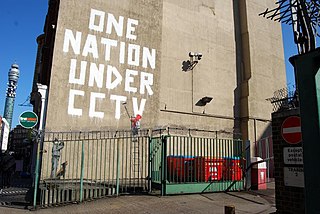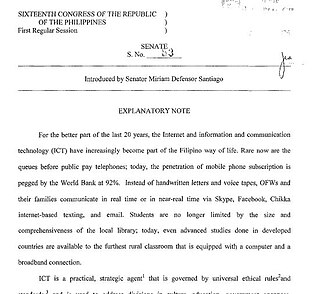 | |
| Author | Joel Gurin |
|---|---|
| Country | United States |
| Subject | Internet censorship |
| Publisher | McGraw-Hill Education |
Publication date | 2014 |
| Pages | 330 |
| ISBN | 978-0-07-182977-9 |

Open Data Now is a 2014 book on open data by Joel Gurin.
 | |
| Author | Joel Gurin |
|---|---|
| Country | United States |
| Subject | Internet censorship |
| Publisher | McGraw-Hill Education |
Publication date | 2014 |
| Pages | 330 |
| ISBN | 978-0-07-182977-9 |

Open Data Now is a 2014 book on open data by Joel Gurin.
A reviewer for the University of California, Berkeley School of Information said the book "is written for the business community, but speaks to the experiences of those in the government, the private sector, or those who make a living advocating for consumers." [1]
A reviewer for the U.S. Chamber of Commerce Foundation says, "Gurin’s snapshot of Open Data's innovators also serve as an effective guidebook." [2] That reviewer also notes interest in the book's claim, "If Open Data is free, how can anyone build a business on it? The answer is that Open Data is the starting point, not the end point, in deriving value from information. In general, governments have focused more on making the data itself available than on public-facing applications. The private sector can then add value by taking Open Data and building something great with it." [2]
Andy Oram, a reviewer for O'Reilly Media, described how the book focused on the cost of data. [3]
Open Data can best be described as accessible public data that people, companies, and organizations can use to launch new ventures, analyze patterns and trends, make data-driven decisions, and solve complex problems.
Open Data Now, page 9
The book is divided into two parts, each of which has chapters.
The author profiles the Open Data Institute, Open Knowledge, and the National Security Agency as organizations working in open data. Definitions are presented for open data and big data. The book is outlined as discussing four business implications for the advent of open data - it will be the product basis for many startup companies and change the nature of investment, marketing, and innovation.
There is a review of the history of open data. United States weather and GPS data are described as free data which have become the basis for new industries generating billions of dollars. Data.gov is presented as a repository of more information which is likely to similarly create new businesses and products.
The chapter presents a history of open data in the United States. Google, Foursquare, Uber, Waze, Instagram, and Flickr are profiled as companies who have created products which have a basis in the use of GPS open data which they use in their mapping services.
The author interviews one of the founders of The Climate Corporation. There is a report from a Health Datapalooza.
The author defines a term, "smart disclosure", to mean the combination of government, company, and user information to curate whatever information a consumer would need to make a purchase decision. Another concept, "choice engine", is discussed to mean a filter of all available choices that an individual might make (perhaps in deciding to purchase a product), screened to take into account everything that a shopper might consider when they want and making a final, accurate recommendation which meets the purchaser's need and is less influenced by advertising. The author talks about his work role at the Federal Communications Commission, where he was tasked with promoting consumer empowerment in the marketplace. Their department believed that the public would benefit when both it had access to more marketplace information, and also when that marketplace information was presented in more relevant ways that personally mattered to each individual.
There is a review of the work of Todd Park. Companies profiled here include Opower, Zillow, GreenButton, and M-Labs.
Topics covered include Digital Accountability and Transparency Act of 2014 and HealthCare.gov.
Companies mentioned include SAP SE, SAS Institute, and Esri.
An overview is given of open data and the U.S. Securities and Exchange Commission, EDGAR, and XBRL.
Organizations profiled include the Carbon Disclosure Project, Unilever, and GoodGuide. There is some discussion of the Dodd–Frank Wall Street Reform and Consumer Protection Act.
There is a discussion of bill shock and why and how it occurs. The Consumer Financial Protection Bureau is presented. The concept of a user review is discussed.
Reputation management, review websites, and more about user reviews is presented. Content analysis and sentiment analysis are described as fields of research in evaluating reviews.
The author presents two models for crowdsourcing. Consider a project organizer who wishes to recruit people to accomplish some task. One method for crowdsourcing could be to sort through a crowd, but identify a small set of people who have expert skills, and then provide special support to encourage them to engage with a project. A project example with this model might be a government convening a funded contest. In another crowdsourcing model, a project organization might provide a little support which is available universally, in hopes that the public will contribute to the project without individuals being given personal attention from the project organizer. Zooniverse is an example of this model with less personal support.
Stack Exchange, TechCrunch, Wikipedia, and InfoArmy are profiled.
Reviews of The Wisdom of Crowds and Reinventing Discovery are given. The concept of open science is presented. Profiles of Rufus Pollock and Aaron Swartz are given. The Human Genome Project, PatientsLikeMe, AllTrials, The Cost of Knowledge, Access2Research, and PLOS are profiled. There is a lot of discussion of how open access relates to many other fields.
The Global surveillance disclosures (2013–present) are described. Concepts of personally identifiable information, privacy, and information privacy are discussed. Alex Pentland's 2009 idea "New Deal on Data" is given as an example of a usable privacy policy. Reputation.com is given as a case study on personal data services.
Sunlight Foundation, Global Witness, Project On Government Oversight, mySociety, ProPublica, and Center for Public Integrity are profiled as organizations which use open data to encourage commentary on business practices.
There is more coverage of the Digital Accountability and Transparency Act of 2014, mentioned elsewhere in the book, and here the law's close relationship with President Obama's public image is discussed. The US Freedom of Information Act is explained. A call is made to establish a Consumer Privacy Bill of Rights.
Lists of advice are given for different kinds of businesses. Advice for small companies includes identifying open data marketing opportunities where there is little competition. Advice for larger companies includes starting to share and use open data immediately, so that the company can begin to grow a culture of discussing the concept.

Privacy is the ability of an individual or group to seclude themselves or information about themselves, and thereby express themselves selectively.

Data mining is the process of extracting and discovering patterns in large data sets involving methods at the intersection of machine learning, statistics, and database systems. Data mining is an interdisciplinary subfield of computer science and statistics with an overall goal of extracting information from a data set and transforming the information into a comprehensible structure for further use. Data mining is the analysis step of the "knowledge discovery in databases" process, or KDD. Aside from the raw analysis step, it also involves database and data management aspects, data pre-processing, model and inference considerations, interestingness metrics, complexity considerations, post-processing of discovered structures, visualization, and online updating.
Consumer privacy is information privacy as it relates to the consumers of products and services.
Marketing research is the systematic gathering, recording, and analysis of qualitative and quantitative data about issues relating to marketing products and services. The goal is to identify and assess how changing elements of the marketing mix impacts customer behavior.
Information privacy is the relationship between the collection and dissemination of data, technology, the public expectation of privacy, contextual information norms, and the legal and political issues surrounding them. It is also known as data privacy or data protection.
A data broker is an individual or company that specializes in collecting personal data or data about companies, mostly from public records but sometimes sourced privately, and selling or licensing such information to third parties for a variety of uses. Sources, usually Internet-based since the 1990s, may include census and electoral roll records, social networking sites, court reports and purchase histories. The information from data brokers may be used in background checks used by employers and housing.
A privacy policy is a statement or legal document that discloses some or all of the ways a party gathers, uses, discloses, and manages a customer or client's data. Personal information can be anything that can be used to identify an individual, not limited to the person's name, address, date of birth, marital status, contact information, ID issue, and expiry date, financial records, credit information, medical history, where one travels, and intentions to acquire goods and services. In the case of a business, it is often a statement that declares a party's policy on how it collects, stores, and releases personal information it collects. It informs the client what specific information is collected, and whether it is kept confidential, shared with partners, or sold to other firms or enterprises. Privacy policies typically represent a broader, more generalized treatment, as opposed to data use statements, which tend to be more detailed and specific.

Ann Cavoukian is the former Information and Privacy Commissioner for the Canadian province of Ontario. Her concept of privacy by design, which takes privacy into account throughout the system engineering process, was expanded on, as part of a joint Canadian-Dutch team, both before and during her tenure as commissioner of Ontario.
In United States constitutional law, expectation of privacy is a legal test which is crucial in defining the scope of the applicability of the privacy protections of the Fourth Amendment to the U.S. Constitution. It is related to, but is not the same as, a right to privacy, a much broader concept which is found in many legal systems. Overall, expectations of privacy can be subjective or objective.

Crowdsourcing involves a large group of dispersed participants contributing or producing goods or services—including ideas, votes, micro-tasks, and finances—for payment or as volunteers. Contemporary crowdsourcing often involves digital platforms to attract and divide work between participants to achieve a cumulative result. Crowdsourcing is not limited to online activity, however, and there are various historical examples of crowdsourcing. The word crowdsourcing is a portmanteau of "crowd" and "outsourcing". In contrast to outsourcing, crowdsourcing usually involves less specific and more public groups of participants.
Information sensitivity is the control of access to information or knowledge that might result in loss of an advantage or level of security if disclosed to others.
A knowledge market is a mechanism for distributing knowledge resources. There are two views on knowledge and how knowledge markets can function. One view uses a legal construct of intellectual property to make knowledge a typical scarce resource, so the traditional commodity market mechanism can be applied directly to distribute it. An alternative model is based on treating knowledge as a public good and hence encouraging free sharing of knowledge. This is often referred to as attention economy. Currently there is no consensus among researchers on relative merits of these two approaches.
Content creation is the act of producing and sharing information or media content for specific audiences, particularly in digital contexts. According to Dictionary.com, content refers to "something that is to be expressed through some medium, as speech, writing or any of various arts" for self-expression, distribution, marketing and/or publication. Content creation encompasses various activities including maintaining and updating web sites, blogging, article writing, photography, videography, online commentary, social media accounts, and editing and distribution of digital media. In a survey conducted by Pew, content creation was defined as "the material people contribute to the online world."
A target market, also known as serviceable obtainable market (SOM), is a group of customers within a business's serviceable available market at which a business aims its marketing efforts and resources. A target market is a subset of the total market for a product or service.

Canadian privacy law is derived from the common law, statutes of the Parliament of Canada and the various provincial legislatures, and the Canadian Charter of Rights and Freedoms. Perhaps ironically, Canada's legal conceptualization of privacy, along with most modern legal Western conceptions of privacy, can be traced back to Warren and Brandeis’s "The Right to Privacy" published in the Harvard Law Review in 1890, Holvast states "Almost all authors on privacy start the discussion with the famous article 'The Right to Privacy' of Samuel Warren and Louis Brandeis".
Anindya Ghose is an Indian-born American academic, and the Heinz Riehl Chair Professor of Business at New York University's Stern School of Business and the director of the Masters of Business Analytics program at NYU Stern. He has been a Visiting Professor at the Wharton School of Business. He is the author of TAP: Unlocking The Mobile Economy which is a double winner in the 2018 Axiom Business Book Awards and has been translated into five languages. He is a Leonard Stern Faculty Scholar with an MBA scholarship named after him. He has been a Visiting Professor at the Wharton School of Business. In 2014 he was named by the blog Poets and Quants as one of the "Top 40 Professors Under 40 Worldwide" and by Analytics Week as one of the "Top 200 Thought Leaders in Big Data and Business Analytics". In 2017 he was recognized by Thinkers50 as one of the Top 30 Management Thinkers globally most likely to shape the future of how organizations are managed and led in the next generation. Thinkers50 also bestowed the Distinguished Achievement Award Nomination for 'Digital Thinking' in 2017. In 2019, he was recognized by Web of Science citation Index in the top 1% of researchers selected for their significant influence in their fields over a 10-year period (2008-2018). He is a recipient of the prestigious INFORMS ISS Distinguished Fellow Award, given to recognize individuals who (i) have made outstanding intellectual contributions to the discipline with publications that have made a significant impact on theory, research, and practice and (ii) intellectual stewardship of the field as reflected in the mentoring of doctoral students and young researchers. His rise from assistant to full professor in 8.5 years at NYU Stern is widely regarded as one of the fastest in the history of the entire Information Systems, operations and Marketing academic disciplines in business schools globally.

Chris Jay Hoofnagle is an American professor at the University of California, Berkeley who teaches information privacy law, computer crime law, regulation of online privacy, internet law, and seminars on new technology. Hoofnagle has contributed to the privacy literature by writing privacy law legal reviews and conducting research on the privacy preferences of Americans. Notably, his research demonstrates that most Americans prefer not to be targeted online for advertising and despite claims to the contrary, young people care about privacy and take actions to protect it. Hoofnagle has written scholarly articles regarding identity theft, consumer privacy, U.S. and European privacy laws, and privacy policy suggestions.

The Magna Carta for Philippine Internet Freedom is an internet law bill filed in the Congress of the Philippines. The bill contains provisions promoting civil and political rights and Constitutional guarantees for Philippine internet users, such as freedom of expression, as well as provisions on information and communications technology (ICT) policy, ICT4D, internet governance, e-governance, cybersecurity, cyberwarfare, cyberterrorism, and cybercrime.
The economics of digitization is the field of economics that studies how digitization, digitalisation and digital transformation affects markets and how digital data can be used to study economics. Digitization is the process by which technology lowers the costs of storing, sharing, and analyzing data. This has changed how consumers behave, how industrial activity is organized, and how governments operate. The economics of digitization exists as a distinct field of economics for two reasons. First, new economic models are needed because many traditional assumptions about information no longer hold in a digitized world. Second, the new types of data generated by digitization require new methods for their analysis.
A privacy seal is a type of trust seal or trustmark granted by third party providers for display on a company's website. Companies pay an annual fee to have an image of the third party provider's seal pasted onto their homepage or privacy policy page. Users can oftentimes click on the seal and be redirected to the web assurance seal service's website which verifies the validity of the privacy seal. They are meant to act as a visual assurance for consumers that the website in question meets a certain standard of privacy. The idea of a privacy seal originates with its physical manifestation – companies have long sought seals of approval like Good Housekeeping to be placed on their tangible products in order to draw in customers who value "quality". While all web assurance seal services follow the guidelines set by the Federal Trade Commission, some providers may have additional requirements. Checks are then conducted on a regular or random basis to ensure compliance. Privacy seals can be applied to various types of e-commerce websites. Some seal providers even create a special privacy seal that is geared toward a certain product like mobile apps or accounting. There are many privacy compliance technology companies, most notably TRUSTArc, CPA Canada WebTrust, PwC Privacy and BBBOnline.